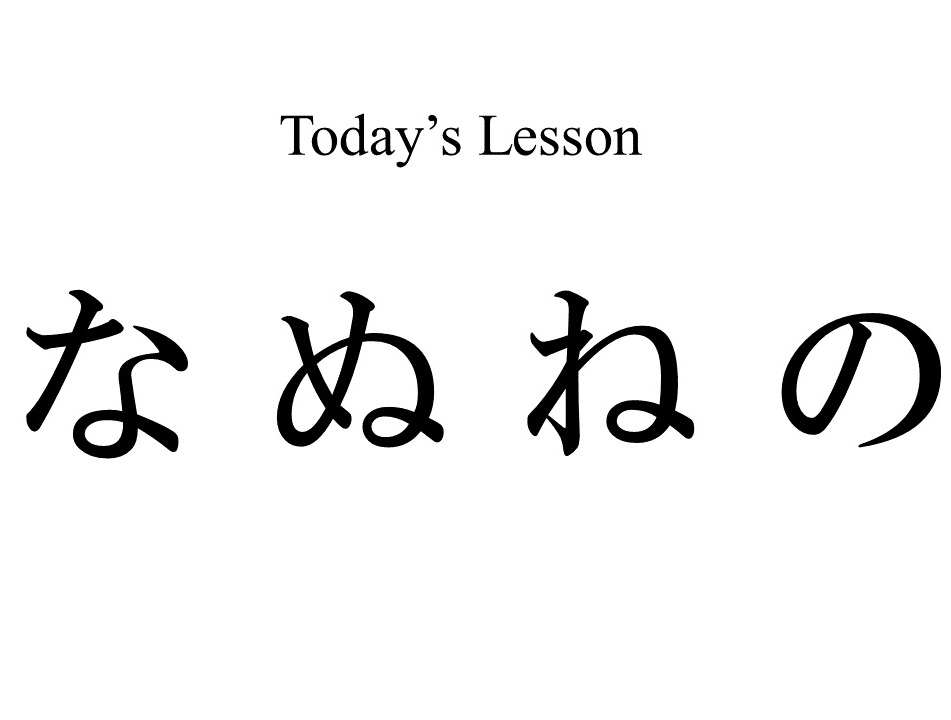
Description of the Japanese Pronunciation な ぬ ね の
![Picture describing Japanese pronunciation [n]](https://www.wasabi-jpn.com/wp-content/uploads/2015/11/n.gif)
な ぬ ね の consist of the Japanese consonant [n] with the Japanese vowels [a], [u] [e] and [o] respectively. When you pronounce [n], your tongue is going to touch the roof of your mouth just a little farther back than your upper gums and you will make a sound by allowing air to pass out through your nose. [n] is a voiced sound.
Does it make sense to you? Let's try to pronounce な ぬ ね の after the tutor on the video!
Wasabi Japanese Pronunciation Lessons
Words Exercise with the Pronunciation [n] な ぬ ね の
Please repeat the following words after the tutor on the video.
| Words | Roman Letters | Meanings |
|---|---|---|
| なぜ | na ze | why |
| 中 | na ka | inside |
| 長い | na ga i | long |
| 犬 | i nu | dog |
| しぬ | shi nu | to die |
| 寝る | ne ru | to sleep |
| 姉 | a ne | sister |
| のむ | no mu | to drink |
| もの | mo no | thing |
| のみもの | no mi mo no | drink |
Sentences Exercise with the Pronunciation [n] な ぬ ね の
Please repeat the following sentences after the tutor in the video.
| Japanese Sentences | English Translations |
|---|---|
| 鼻の長い犬がいます。 | There is a long nosed dog. |
| 姉が二階で寝ています。 | My sister is sleeping on the second floor. |
| 好きな飲み物はコーラです。 | My favorite drink is coke. |
Tongue Twister Exercise with the Pronunciation [n] な ぬ ね の
Please repeat the following tongue twisters after the tutor on the video. Also, please focus on the pronunciation practice, not the meaning, because they were made only for the sake of practice.
| Japanese Tongue Twisters | Vocabulary |
|---|---|
|
京の生だら奈良生真名がつお。 |
京: brand name coming from 京都 (Japan’s previous capital), 生: raw, たら: cod, 奈良: prefecture’s name |
|
あの女のぬう布の名は何?あの布は名のない布なの。 |
女: woman, ぬう: to stitch, 布: cloth, 名: name, 何: what |
|
野良猫ノンノののんきな物語。 |
野良猫: stray cat, ノンノ: cat’s name, のんき: easy, 物語: story |
Conclusion
This is the how to pronounce [n] な ぬ ね の. We recommend that you practice the sentences above at least 5 times for each exercise, though we understand that pronunciation practice can be dull. Good pronunciation will give you listening and speaking ability, and thereby you will be confident enough to speak Japanese with native speakers. Thus, the ability you gain is well worth the time spent. We are looking forward to seeing you in the next lesson; [ɲ] に.
